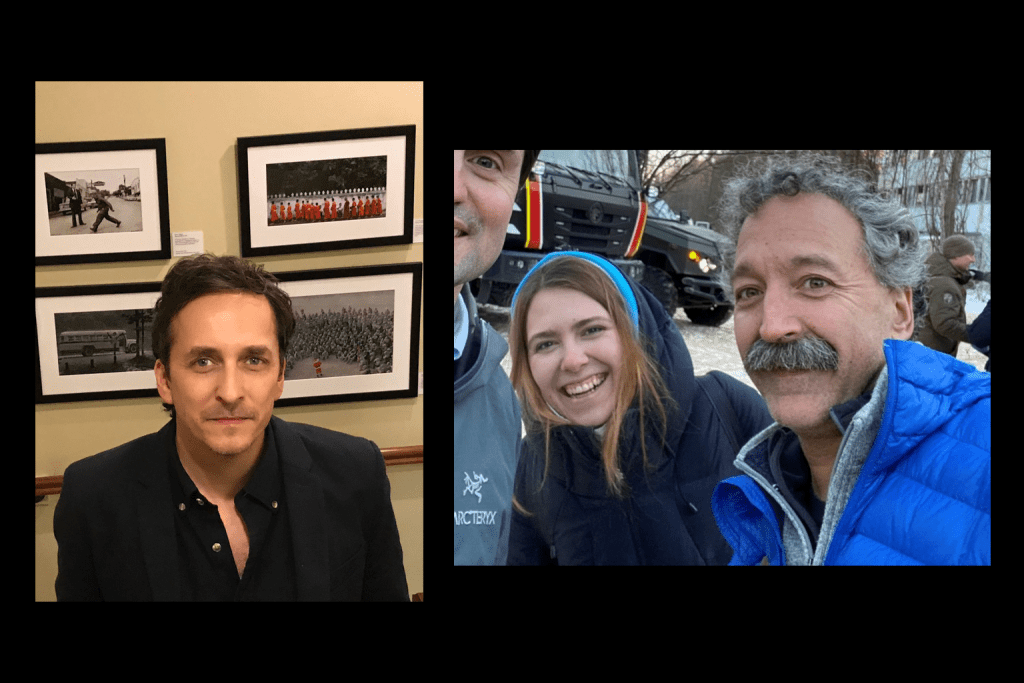The tragic deaths of journalists Pierre Zakrzewski, Oleksandra Kuvshynova, and Brent Renaud in Ukraine while they were covering Russia’s invasion of the country this week underscores the dangers facing those covering the war.
On Monday, March 14, a vehicle carrying a Fox News team was attacked near the village of Horenka, outside the capital Kyiv. Camera operator Pierre Zakrzewski and Ukrainian journalist Oleksandra Kuvshynova died from injuries sustained during the attack. Correspondent Benjamin Hall was injured and remains hospitalized.
The previous day, U.S. reporter and documentary filmmaker Brent Renaud was shot and killed at a checkpoint in Irpin, outside Kyiv, in an attack that also injured U.S. photographer Juan Arredondo.
“Reporting on this war is a vital public service,” said Gulnoza Said, CPJ’s Europe and Central Asia program coordinator. “Ukrainian and Russian authorities must do their utmost to ensure safety of all journalists, and to thoroughly investigate attacks on the press.”
Other press freedom news from the Russia-Ukraine war:
- Ukrainian journalist Oleh Baturyn missing since March 12
- CPJ joins letter calling for sanctions on Russia not to restrict internet access
- Calling the war ‘war’: Meduza’s Galina Timchenko bucks Russia’s censorship on Ukraine
- ‘Hard, emotional and painful’: Journalists in Ukraine on covering Russia’s invasion
- Mexican journalist Armando Linares shot and killed in Zitácuaro
- U.K. Supreme Court refuses Julian Assange appeal request in extradition case
- Belarus courts separately sentence journalists Aleh Hruzdzilovich and Yahor Martsinovich to prison; authorities label more media ‘extremist’
- Zimbabwe court declines to dismiss case against New York Times freelancer Jeffrey Moyo in immigration case
- French journalist Olivier Dubois seen in new video 11 months after disappearing in Mali
Spotlight
As President Vladimir Putin enforces censorship of coverage of Russia’s invasion of Ukraine and increases the risks for independent journalists in Russia, western governments and the United Nations can take pivotal steps to ensure that journalists fleeing are able to reach safety and uphold press freedom.
In an op-ed, CPJ Executive Director Robert Mahoney describes how governments that have pledged to protect freedom of the press can support Russian journalists right now. “Russian journalists should be given the visas they need to enter the E.U., U.K., U.S. and Canada,” writes Mahoney. “The Biden administration should back its emphasis on the need for a free press expressed at its ‘Democracy Summit’ in Washington in January. Canada and the U.K. should live up to their roles as co-chairs of the Media Freedom Coalition of 52 countries pledged to defend free media.”
The ACOS Alliance, a coalition of 129 news organizations, freelance journalist associations, and press freedom groups, including CPJ, issued a statement related to the Russia-Ukraine war. The Alliance “is extremely concerned about the safety of journalists operating in this dangerous and volatile situation, particularly freelancers, local journalists and media workers.”
- Journalism is a public good: World trends in freedom of expression and media development | Global report 2021/2022 — UNESCO
- ‘We wanted to be in combat zones. We were as courageous as the men.’ — Nazanin Lankarani, New York Times
- Who is Russian propaganda for? — Jon Allsop, Columbia Journalism Review
